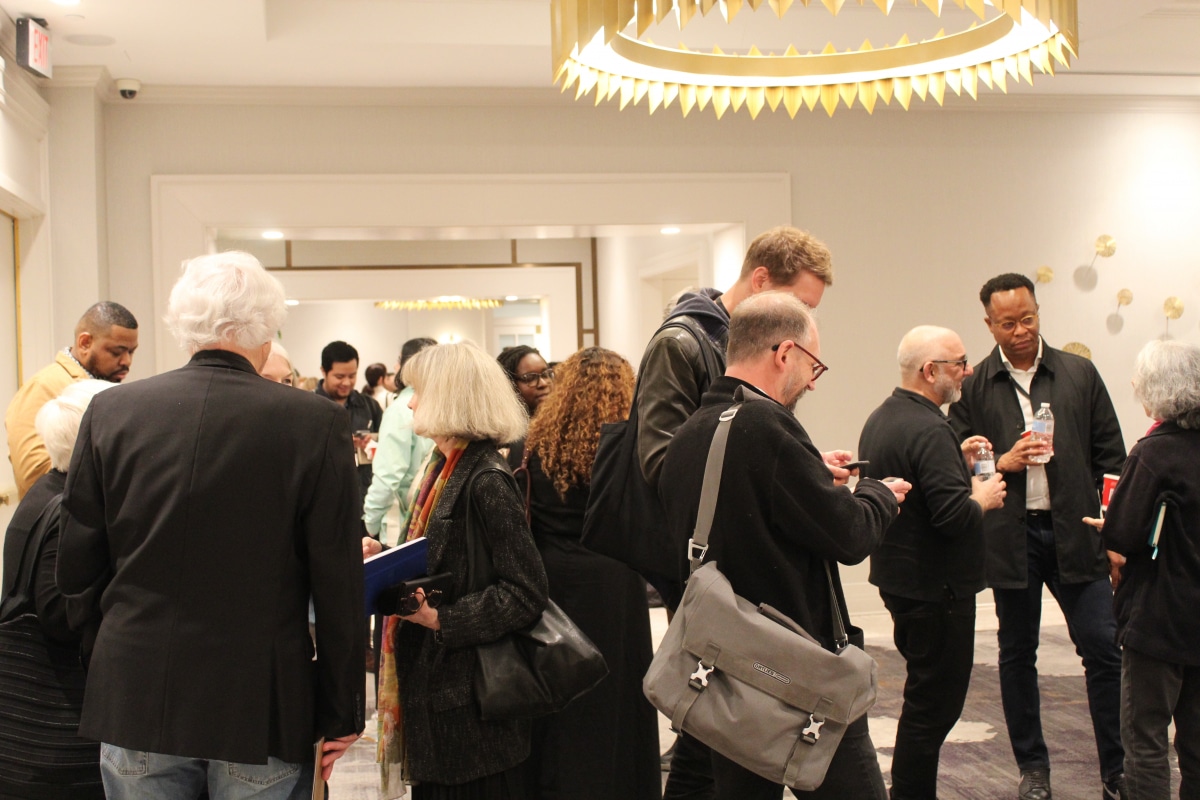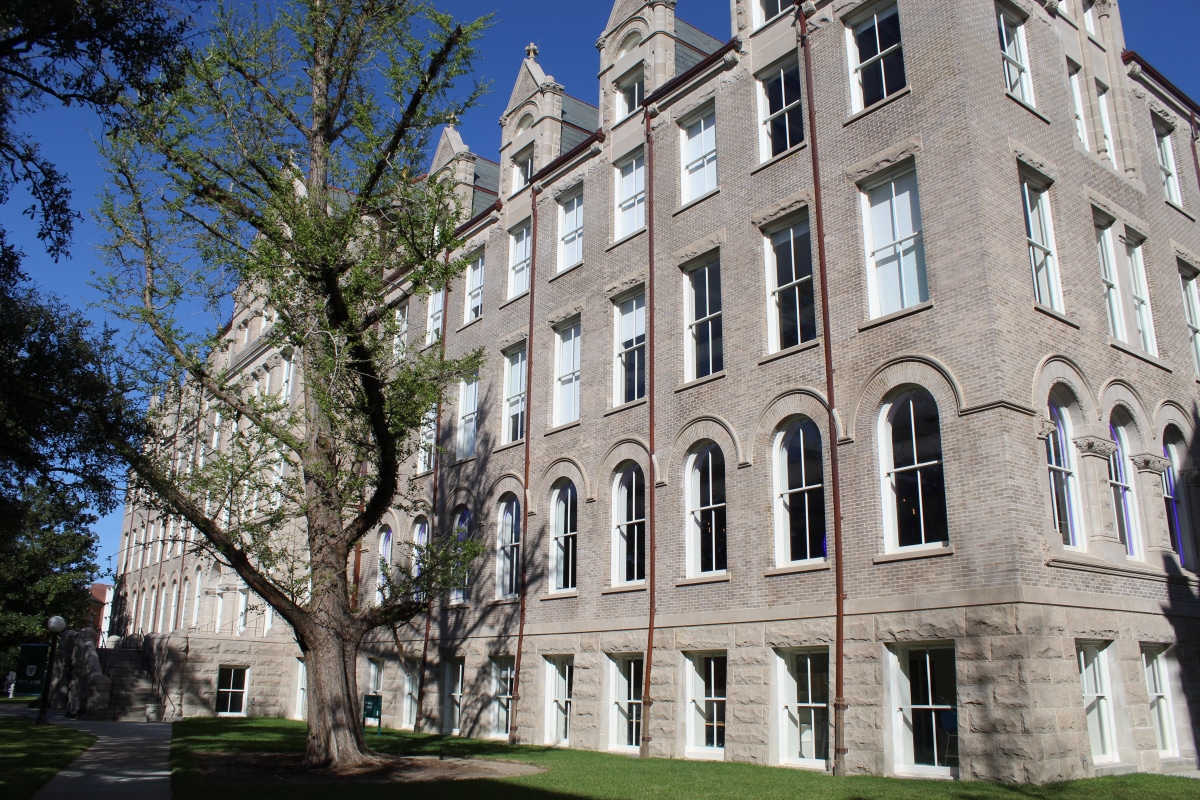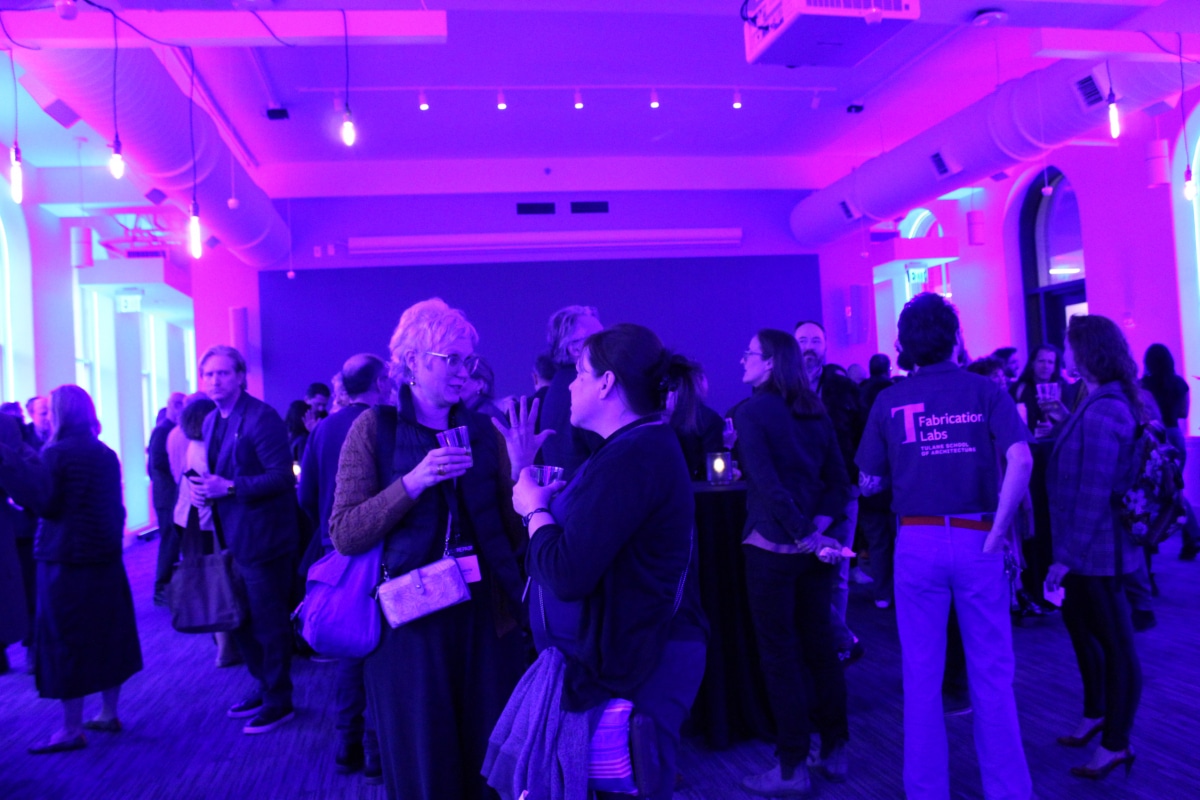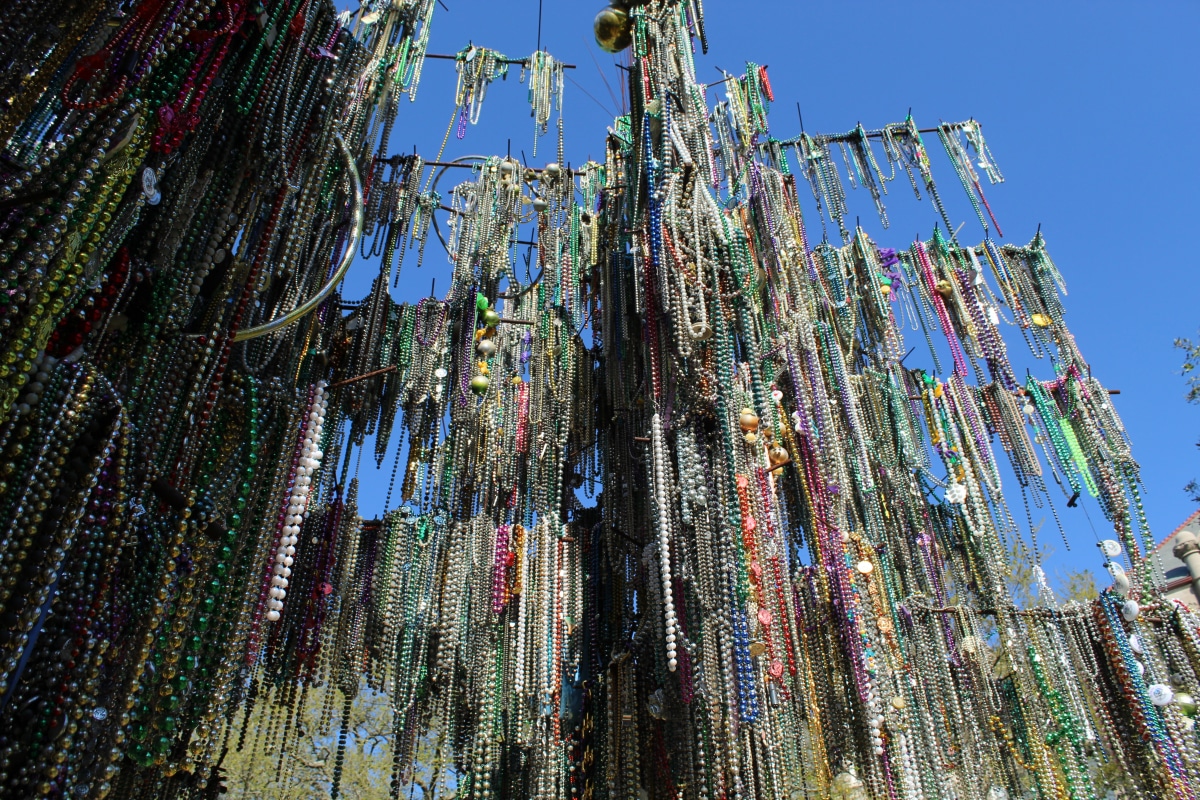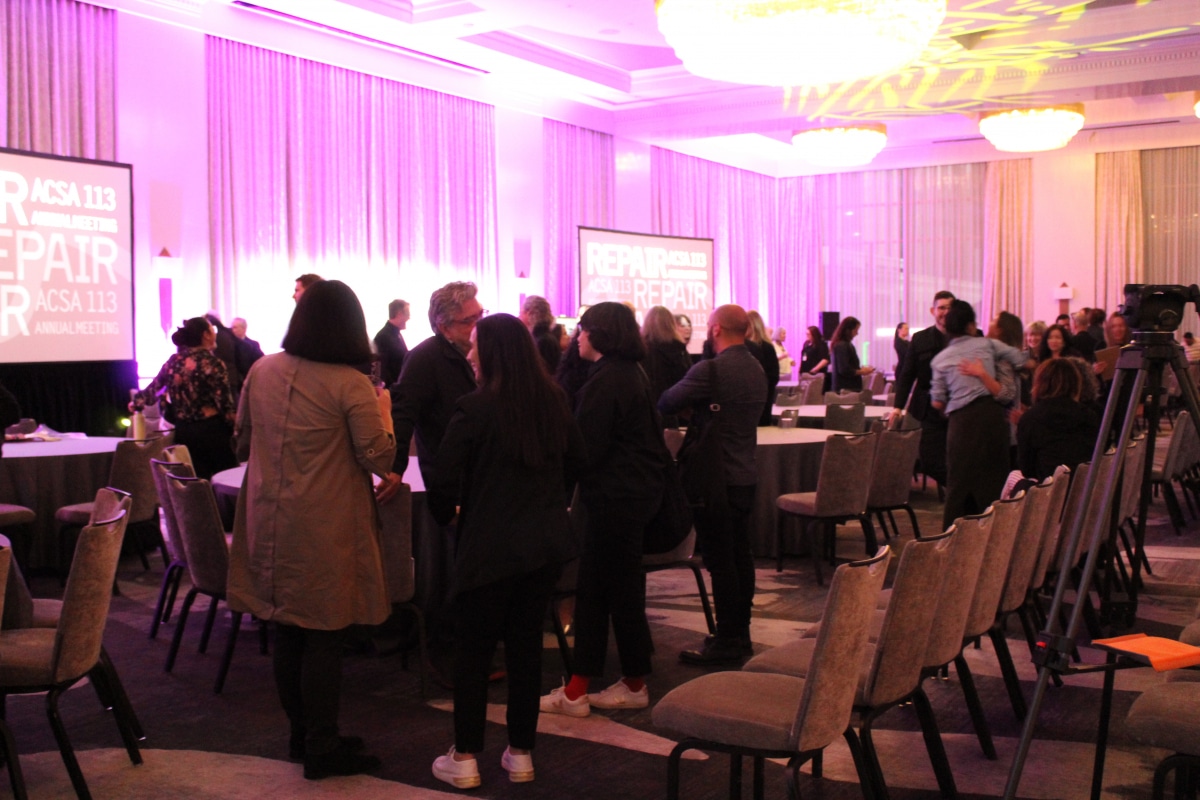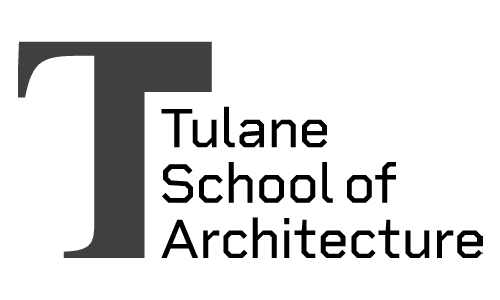Conference Recap
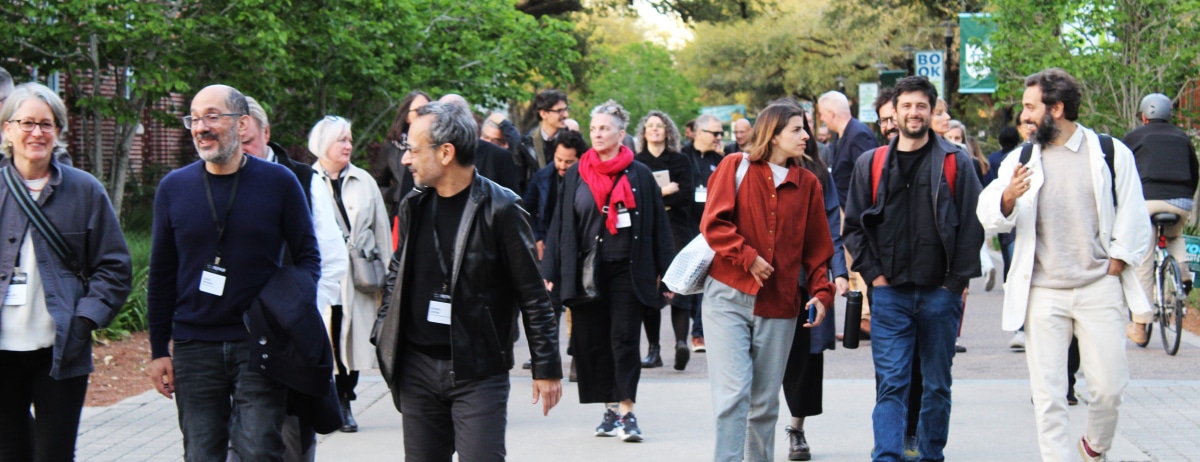
The Association of Collegiate Schools of Architecture (ACSA) held its 113th Annual Meeting in New Orleans, LA, March 20-22, 2025. The ACSA Annual Meeting is a global convention that unites educators, practitioners, and students in the fields of architecture, design, and allied disciplines.
Hosted by Tulane University, the 113th Annual Meeting’s theme of repair invited attendees to address the past and present harms of the practice, culture, and pedagogy of architecture. Situated in the city of New Orleans, 20 years after Hurricane Katrina, repair was at the forefront of the conference’s programming, with various opportunities for nuanced conversations, facilitated discussions, and collective problem-solving.
Day One
Ahead of the conference kickoff on Thursday, March 20, attendees engaged in pre-conference activities, including a tour of Tulane University’s two award-winning design-build programs, URBANbuild and Small Center; a grant writing workshop for architecture faculty; and an APR writing workshop hosted by NAAB. The conference officially began with afternoon concurrent sessions that covered topics ranging from community repair to sustainable construction.
Later that evening, ACSA President Cathi Ho Schar and First Vice President José L.S. Gámez hosted the ACSA113 opening reception. During their statements, Ho Schar and Gámez thanked attendees for their participation and discussed the complex and serious issues facing colleges, universities, and the ACSA community.
“We are experiencing hurt and division within our own community due to decisions, actions, and reactions to this changing world,” said Ho Schar during the opening address.
“We on the ACSA Board of Directors want to first start reinforcing the message that ACSA as an organization remains committed to our core values of equity, social justice and climate action, teaching and learning and research, scholarship and creative practice,” stated Gámez. “We sincerely believe that everyone gathered here tonight also believes in these commitments and is open to conversations that examine what we hold in common.”
The opening address was followed by a conference overview provided by Sara Carr of Northeastern University and Rubén García Rubio of Tulane University. Conference attendees were then treated to a presentation on the history of New Orleans by Tulane University’s Richard Campanella. The plenary continued with the 2025 Architectural Education Awards Ceremony, which recognized the work of over 50 educators and scholars across 12 award categories (click here to view the winners). During the ceremony, the 2025 AIA/ACSA Topaz Medallion for Excellence in Architectural Education was awarded to Thomas Fisher Assoc. AIA, who delivered the opening keynote.
“Our responsibilities as educators extend beyond our teaching research and our community service to include the really essential task, speaking truth to power,” shared Fisher. “I think this is especially important right now at a time when we are seeing those in power ignoring or distorting the truth as it is happening. And we are living in perilous times when democracy itself is under threat by the very people supposed to protect and defend it.”
“We as members of the ACSA have never had more reason to use the protections that tenure as faculty members or licensure as architects provide us to speak up against these abuses of power,” Fisher continued.
During his speech, Fisher cited the work of American-Canadian journalist and author Jane Jacobs, particularly Jacobs’ 2004 book Dark Age Ahead, and his own book, Space, Structures, and Design in a Post-Pandemic World (Routledge, 2022). Fisher’s address emphasized the importance of solidarity amongst architects and educators as he urged them to stand up against the injustices happening in higher education.
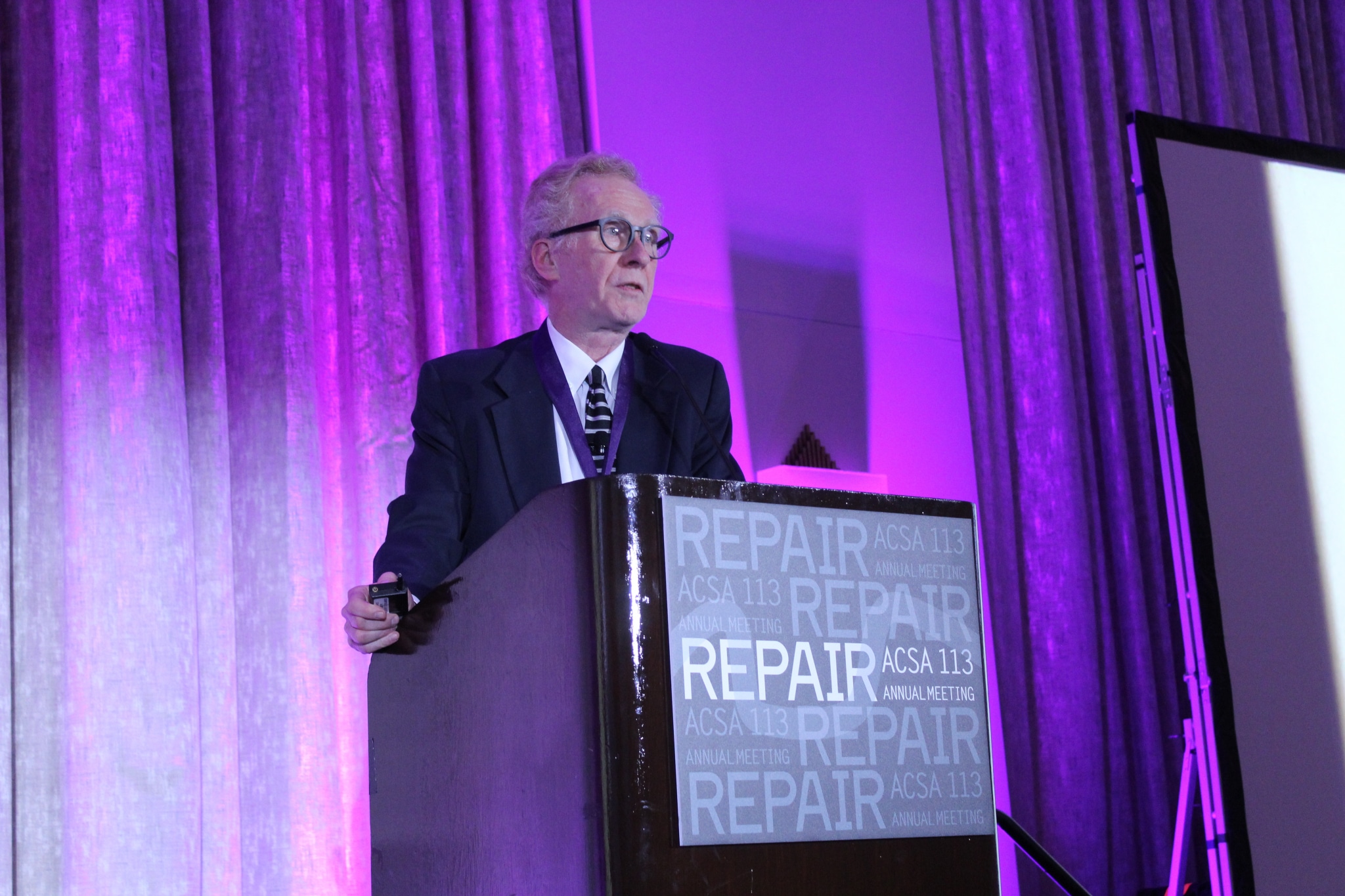
Thomas Fisher Assoc. AIA delivering the opening keynote.
Day Two
The second day of the conference began with the Design, Affordability and Community: New Orleans Housing Across Scales tour, a partnership with the AIA Housing and Community Development Knowledge Community. During this ticketed event, attendees discussed opportunities to repair the damaged housing market through the intentional marriage of policy and design. The tour group visited AIA award-winning veterans housing; small-scale, faith-based infill initiatives; and mixed-use, health-centered senior housing.
Day Two included concurrent research and special focus sessions along with a facilitated workshop, Toward Repair: Bringing our Community Together, organized by Strategy Matters. During the workshop, participants broke into small groups to discuss topics of contention, including threats confronting architectural education and the decision to halt JAE 79.2. The groups consolidated their thoughts in an open forum and then brought their sentiments to center stage as the workshop organizers facilitated an open dialogue. While the workshop provided a platform for discussion, participants agreed that the conversation is ongoing, with future opportunities for continued exchanges, especially with those not at the conference.
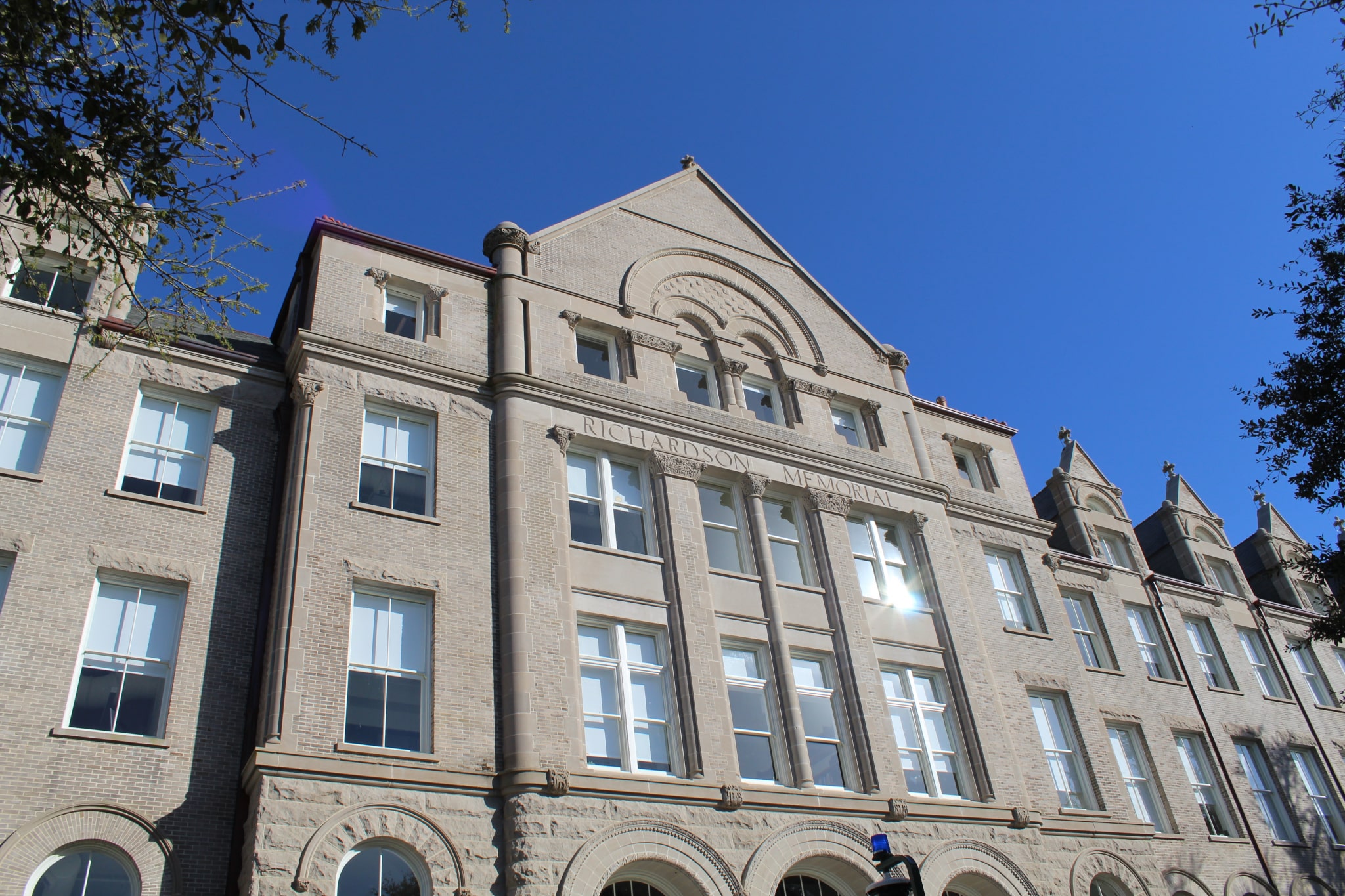
Richardson Memorial Hall, the main building for Tulane School School of Architecture and Built Environment.
Later that afternoon, conference goers were transported to Tulane University to visit the campus ahead of the evening’s activities. Friday’s keynote was delivered by Anna Dyson, the Founding Director of the Yale Center for Ecosystems + Architecture (Yale CEA) and a Hines Professor of Sustainable Architecture at Yale University. During the keynote, Dyson shared Yale CEA’s approach to tackling major challenges facing architecture and urban design. She emphasized the studios’ dedication to prioritizing the health and wellbeing of living systems by integrating natural processes to foster biodiversity and transitioning to circular material economies. The keynote concluded with a panel discussion moderated by Iñaki Alday, featuring Dyson, Bryan C. Lee, Jr., and Steve Dumez. The evening ended with a reception at Tulane University’s newly renovated School of Architecture and Built Environment building.
Day Three
The final day of the conference included opportunities to shape the work of ACSA’s Committees. In The Load We Bear: Addressing Faculty Mental Health and Well-being, members of the ACSA Leadership Committee discussed architecture educators’ mental health and well-being challenges, especially in the post-pandemic era. The session provided a space for attendees to express vulnerability as they shared the mental health challenges they encounter in their roles. Tulane University’s Small Center for Collaborative Design also hosted two workshops, Community-Engaged Educators Round Table: Value Setting and University-Based Community Design Center Round Table: The Future of the Field. These interactive sessions invited participants to work toward repair in methods of working with community in the classroom and dive into the assessment and professionalization of community design as they relate to the future of the field.
The ACSA113 closing keynote was presented by the 2025 Tau Sigma Delta Gold Medal recipient Kate Orff, founder of SCAPE Studio and Director of the Urban Design Program, Co-Director of the Center for Resilient Cities and Landscapes (CRCL), and Professor at Columbia University’s Graduate School of Architecture, Planning and Preservation (GSAPP). During Orff’s keynote address, she reflected on her journey in publishing. The conference concluded with a closing reception as attendees reflected on ways to incorporate their learnings into their everyday lives and initiate repair in their practice.
Post-Conference
On Sunday, March 23, attendees had the opportunity to join two post-conference tours. The Black History of New Orleans Bus Tour visited landmarks including the Whitney Plantation, the levee breach from Hurricane Katrina, Studio B, Treme (the oldest Black neighborhood in New Orleans), and more. The tour was designed to highlight how the city’s resilient enslaved community was able to preserve their culture through traditions, religion, music, cuisine, and celebration. The Building Community Resilience through Green Stormwater Infrastructure tour led participants through the journey of stormwater in New Orleans through engineered, built environment, and natural system morphologies. Stops included a historic stormwater pumping station operated by the Sewerage and Water Board of New Orleans, a large-scale green infrastructure and active transportation project built and operated by the City of New Orleans, architectural solutions utilized in compliance with New Orleans’ resilient building and zoning codes, a project to pilot innovative land stewardship through resilient stormwater management, and community-based green infrastructure built by and for the residents of on of New Orleans’ most historic black enclaves.
Interested in continuing the conversations that were started during ACSA113? Stay tuned for upcoming opportunities to continue the discourse.
Photo Album Recap
Please visit ACSA’s Flickr account to access more photos (Day One, Day Two, Day Three).
CONFERENCE PARTNERS
Questions
Michelle Sturges
Conferences Manager
202-785-2324
msturges@acsa-arch.org
Eric W. Ellis
Senior Director of Operations and Programs
202-785-2324
eellis@acsa-arch.org

 Study Architecture
Study Architecture  ProPEL
ProPEL 